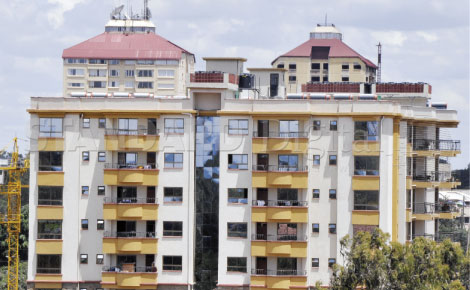×
The Standard e-Paper
Fearless, Trusted News
 |
| A development in Hurlingham, Nairobi. |
By KEVIN OGUOKO
NAIROBI, KENYA: Real estate activity has picked up at the top-end of the market for the first quarter of this year, the latest Hass Property Index shows.